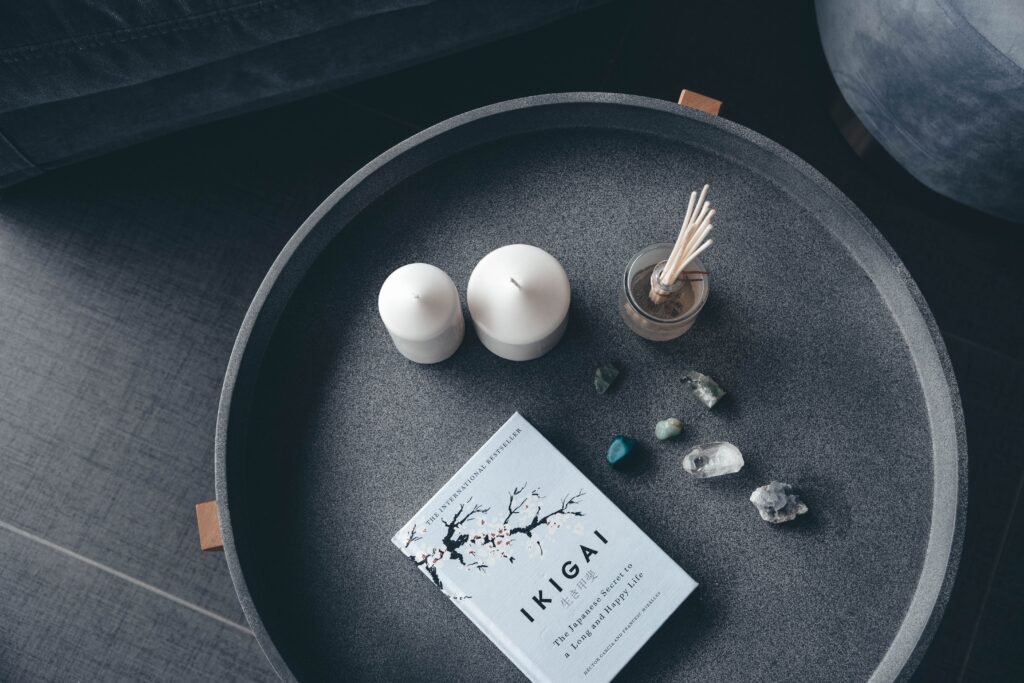
Ikigai, a term derived from the Japanese words “iki” meaning life and “gai” meaning value or worth, represents a profound concept that encompasses the essence of finding purpose and fulfilment in one’s life. Rooted in Japanese culture, ikigai serves as a guiding principle, helping individuals navigate their path towards a balanced and meaningful existence. This post explores the components of ikigai and its significance in fostering a sense of purpose, satisfaction, and overall well-being.
Discovering One’s Passion:
At the core of ikigai lies the pursuit of identifying one’s passion. It involves reflecting on personal interests, hobbies, and skills, and recognizing activities that ignite a sense of joy and enthusiasm. By discovering and embracing our passions, we can engage in activities that resonate with our authentic selves, leading to a deep sense of purpose.
Achieving Mastery:
Ikigai encourages us to invest time and effort into honing our skills and achieving mastery in our chosen fields. Whether it be art, sports, or a profession, the Japanese principle emphasizes the value of continuous learning and growth. By striving for mastery, we gain a sense of accomplishment, build confidence, and cultivate a stronger connection to our chosen pursuits.
Making a Positive Impact:
Ikigai emphasizes the importance of contributing to the well-being of others and society at large. It encourages us to identify ways in which we can use our skills and passions to make a positive difference in the world. By helping others, whether through acts of kindness or by pursuing meaningful careers, we can experience a profound sense of fulfilment and purpose, knowing that our actions are creating a positive impact.
Cultivating Mindfulness and Presence:
Ikigai encourages us to cultivate mindfulness and embrace the present moment. By being fully engaged in the activities we undertake, we can experience a deep state of flow, where time seems to cease and a sense of immersion and satisfaction takes over. This practice of mindfulness allows us to appreciate the beauty and significance of even the simplest of tasks, fostering a greater sense of gratitude and contentment.
Balancing Personal and Social Relationships:
The principle of ikigai emphasizes the importance of nurturing both personal and social relationships. It highlights the need to maintain harmonious connections with loved ones, friends, and community. Strong relationships provide support, encouragement, and a sense of belonging, contributing to overall well-being and fulfilment.
In Summary:
Ikigai represents a powerful concept that transcends mere existence, offering a roadmap to a purposeful and fulfilling life. By exploring one’s passions, achieving mastery, making a positive impact, cultivating mindfulness, and fostering meaningful relationships, we can embrace the essence of ikigai. This Japanese principle serves as a reminder to prioritize personal values, find joy in the present moment, and strive for a harmonious and balanced life. By aligning our passions and talents with the betterment of ourselves and others, we can embark on a transformative journey towards a life filled with meaning, purpose, and lasting happiness.
A wealth of information can be found online regarding Ikigai and potential ways of exploring the concept of finding purpose and fulfilment in life. A short, light-hearted but very instructive introduction to the idea can be found in Tim Tamashiro’s TED talk “How to Ikigai”. His concept of a ‘side-helpful’ as an alternative to a ‘side-hustle’ is an eye-opener, along with the notion that your ‘job’ is how you earn a living, but your ‘work’ is what you have to do to find fulfilment; they can be two completely different things, or can make a formidable combination (it’s up to you).
If you have enjoyed reading this, you might be interested in my other related posts collected here, or my full set of wellbeing and personal development posts here.
A Checklist For Finding Your Ikigai:
I have included a seven-point checklist to assist with finding your Ikigai if you want to explore this further; you can use it to navigate the process of discovering and pursuing your Ikigai—the intersection of your passions and talents with the world’s needs. Embracing Ikigai can help you lead a more fulfilling and purpose-driven life, while still working towards financial stability.
Identify Your Passions:
Reflect on the activities and pursuits that bring you joy, fulfilment, and a sense of purpose. What are the things you love to do, the areas where you feel most engaged and alive? Make a list of your passions and interests.
Explore Your Talents and Strengths:
Consider your unique skills, talents, and strengths. What are you naturally good at? What activities or tasks do you excel in? Identify your strengths and areas of expertise.
Determine What the World Needs:
Reflect on the needs and problems in the world or your community. What issues resonate with you? What positive impact do you want to make? Consider how you can contribute to addressing those needs.
Discover What You Can Be Paid For:
Explore potential career paths or opportunities where you can utilize your passions, talents, and skills to create value. Identify areas where your interests align with market demands and where you can be compensated for your contributions.
Find the Intersection:
Look for the areas where your passions, talents, the world’s needs, and potential financial stability intersect. Seek to find the sweet spot that combines these elements. This is where your Ikigai lies.
Set Meaningful Goals:
Once you have identified your Ikigai, set meaningful and specific goals to work towards it. Break down your goals into actionable steps and create a plan to move forward. Regularly review and adjust your goals as needed.
Embrace Growth and Adaptation:
Remember that Ikigai is not a static destination but a lifelong journey. Embrace continuous growth, learning, and adaptation. Stay open to new experiences, challenges, and opportunities for personal and professional development. Keep a list of potential projects for the future.
Good luck finding your Ikigai!
